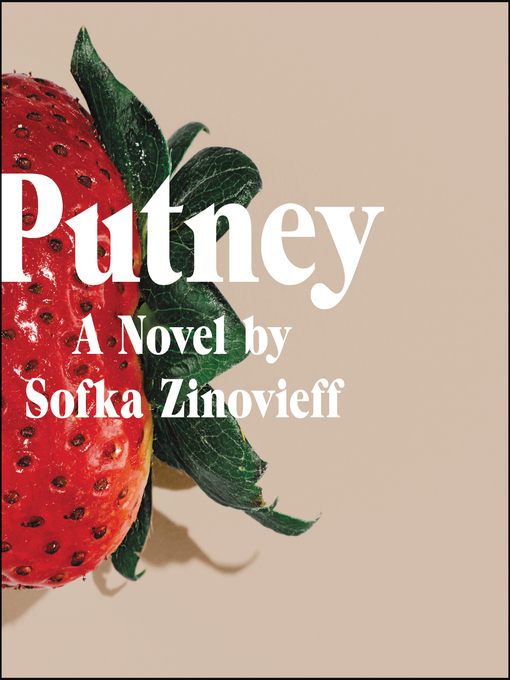
Putney
A Novel
کتاب های مرتبط
- اطلاعات
- نقد و بررسی
- دیدگاه کاربران
نقد و بررسی

June 25, 2018
In this incendiary story of sexual obsession and abuse from Zinovieff (The Mad Boy), it’s love at first sight for composer Ralph Boyd when he meets entrancing Daphne Greenslay. The problem is he’s 27 and she’s nine. They are introduced at her family’s house in Putney, in Southwest London, when Ralph is hired by Daphne’s novelist father, Edmund, to write the score for a play based on his most famous novel, Oedipus Blues. It’s the 1970s and rich, successful Edmund’s idea of parenting is relaxed, to say the least. In this permissive environment, well-evoked by Zinovieff, the relationship between Ralph and Daphne secretly flourishes. Ralph eventually marries an age-appropriate woman and has children, but Daphne remains his romantic obsession. Forty years later, Ralph is dying of cancer, and Daphne is a recovering drug addict and single mother to a young daughter. Daphne reconnects with her best friend, Jane Fish, who was a childhood witness to her relationship with Ralph and nudges her toward a confrontation with him over the sexual abuse she suffered at his hands. Told from their three vividly established points of view, and traveling back and forth between the 1970s and today, the novel makes a convincing case for how the anything goes ethos of that earlier decade can lead to a reckoning decades later.

Starred review from June 15, 2018
A novel that interrogates the intersection of love, desire, and abuse.Ralph Boyd, a renowned avant-garde composer, is in his 70s and fighting cancer. Daphne Greenslay has emerged from a few volatile, precarious decades into middle-aged peace. She's a single mother, living across the Thames from the home where she lived as a girl. Daphne is also an artist, and she's working on a piece about her unconventional childhood. Ralph figures prominently in this dreamlike, Edenic collage. Daphne's parents were upper-class bohemians--her father a writer and her mother a Greek expat involved in radical politics--and Ralph was part of their circle of friends, comrades, and acolytes. Instantly captivated by the dark-haired, dark-eyed, and slightly feral child Daphne, Ralph made himself her confidant and special friend as he made her his muse. He also made her his lover. Or he raped her. Zinovieff's (The Mad Boy, Lord Berners, My Grandmother and Me, 2015, etc.) novel turns on the rupture between these two ways of viewing the past. For Ralph, the girl Daphne is a talismanic figure. His love for her is unique and pure, and memories of their trysts sustain him through the pain and indignities of chemotherapy and old age. For Daphne, Ralph is a significant player in a romanticized version of her childhood, her relationship with him one of the more benign parts of her wild history. Then Daphne reconnects with her one-time best friend, Jane, who encourages her to see Ralph in a new and damning light. Zinovieff is obviously working with themes playing out in contemporary culture, but her novel is also reminiscent of the work of Iris Murdoch and A.S. Byatt. Like these English novelists who precede her, Zinovieff is interested in the dynamics of families who see themselves as outside the norm, and, like Murdoch and Byatt, she is concerned with moral dilemmas that don't have easy solutions. Deciding to let Ralph, Daphne, and Jane each have their say in alternating chapters makes it possible for the author to present the full complexity of her subject.Timely and nuanced.
COPYRIGHT(2018) Kirkus Reviews, ALL RIGHTS RESERVED.

August 1, 2018
As a 13-year-old growing up in her free-spirited, intellectual London household, Daphne fell in mutual, all-consuming love with her father's friend Ralph, a composer 18 years her senior whom she first met when she was 8. Nearly 40 years later, Daphne, herself now the mother of a preteen daughter, still recalls Ralph with affection when she reunites with her childhood friend, Jane, who asks a single, pointed question that begins to reframe Daphne's entire understanding of the secret affair, forcing out and toppling over all her memories of it. Following Daphne foremost, as well as Ralph and Jane, Zinovieff's novel is a nuanced, thought-provoking plunge into the questioning depths of consent and exploitation. Readers start to see the ways Daphne's life was altered by Ralph's intrusion, which grows more insidious as pages pass, before she does. Yet Zinovieff still crafts suspense from Daphne's present-day realizations, as she peers into her now-different past and confronts the potential abyss of exposure. Contemplating also youth's undying phantom and memory's refusal to remain fixed, Putney is a discussion starter.(Reprinted with permission of Booklist, copyright 2018, American Library Association.)

























دیدگاه کاربران